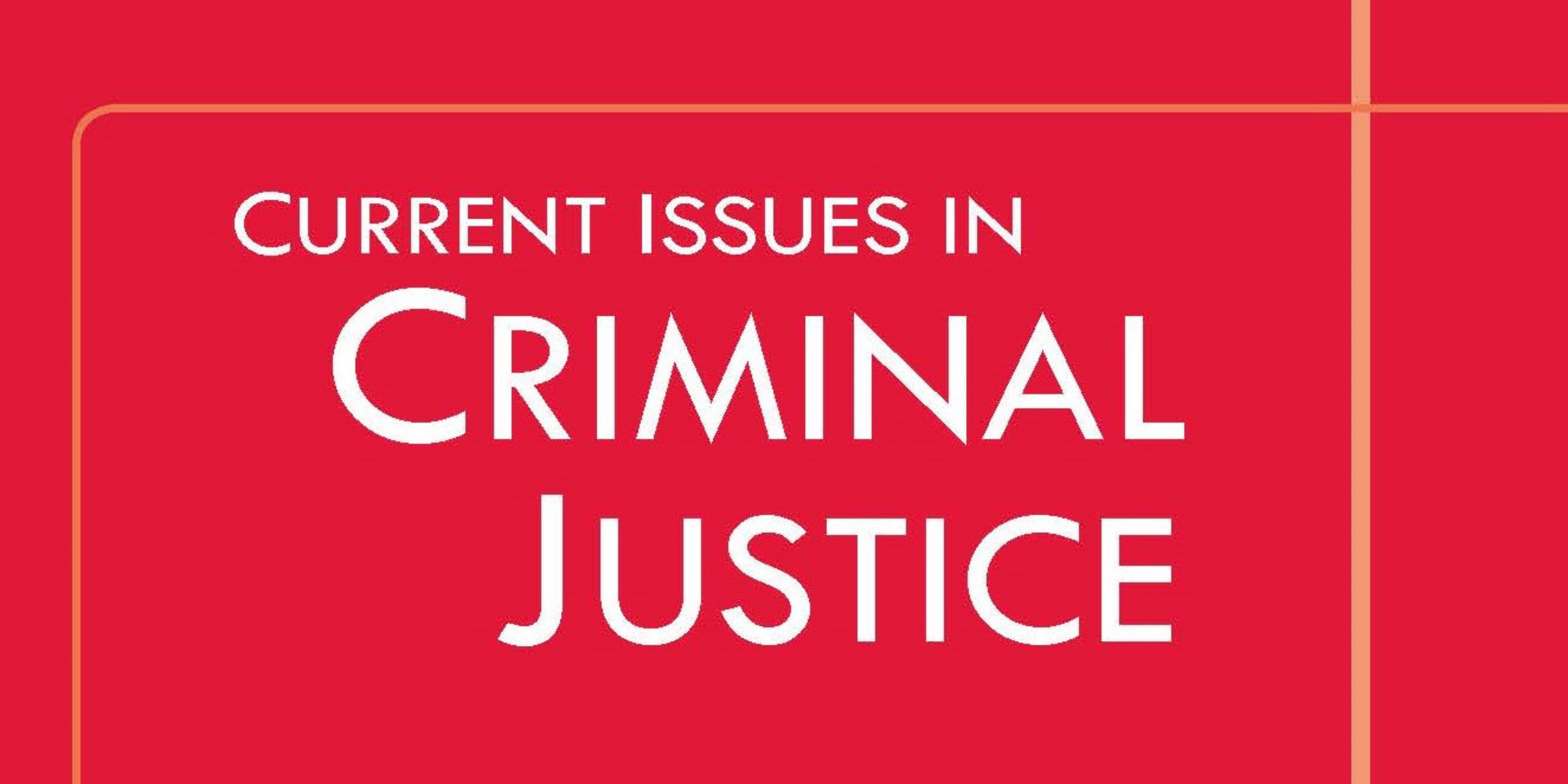
COVID-19, Criminal Justice and Carceralism
COVID-19, Criminal Justice and Carceralism
Launch of COVID Special Issue of Current Issues in Criminal Justice
PLEASE NOTE: This is event is being held online and in-person at Sydney Law School. (See below for further details)
This panel discussion will bring together the editors of, and contributors to, the COVID-19 special issue of the Current Issues in Criminal Justice journal (CICJ).
Titled ‘COVID-19, Criminal Justice and Carceralism – Critical Reflections and Change’, the special issue has been co-edited by Professor Thalia Anthony of the University of Technology Sydney and Professor Lorana Bartels of the Australian National University.
The special issue sheds light on both the problems and possibilities arising from COVID-19, across Australia, Aotearoa/New Zealand, the Philippines, Canada and the United States.
The pandemic has brought into sharp relief the devastation that penality and law enforcement wreaks on the lives of the marginalised and disempowered, including through hyper-surveillance, police violence and imprisonment. Internationally, where it has not been managed in the community, COVID-19 has spread rapidly in prisons.
Yet the pandemic has also been an opportunity for social movements and advocates to expand their reach and articulate their vision for prison abolition and defunding police. This has dovetailed with the Black Lives Matter / Justice for First Nations Deaths in Custody campaigns in Australia and in other settler colonies. They have called for the reimagining of justice outside of a penal and oppressive framework and moving towards social supports and basic income provisions.
Panel member Alison Whittaker will discuss her article, ‘No news is no news: COVID-19 and the opacity of Australian prisons’, and Dr Louise Boon-Kuo and Dr Vicki Sentas will discuss the article, ‘Policing biosecurity: police enforcement of special measures in New South Wales and Victoria during the COVID-19 pandemic’.
The COVID-19 special issue of CICJ highlights the numerous issues in the justice system laid bare by the pandemic, as well as offering suggestions for a more hopeful, inclusive and just future, if only we have the wit and will to commit to them.
Speakers:
Professor Thalia Anthony is a Professor of Law at the University of Technology Sydney. Thalia’s expertise is in the areas of criminal law and procedure, and Indigenous people and the law, with a particular specialisation in Indigenous criminalisation and Indigenous community justice mechanisms. Thalia’s research is grounded in legal history and understandings of the colonial legacy in legal institutions and has influenced policy development and public debates in relation to remedies for wrongs inflicted on Indigenous peoples. She has strong connections with justice and advocacy groups, including UTS’ Jumbunna and Aboriginal legal services.
Professor Lorana Bartels is the Criminology Program Leader at the Australian National University. Professor Bartels’ research focuses on courts, sentencing and therapeutic jurisprudence; prisons, community corrections and correctional policy; and the treatment of women and Indigenous peoples in the justice system. Lorana was previously Head of the School of Law and Justice at the University of Canberra and has also worked at the Australian Institute of Criminology, Family Court of Australia, NSW Attorney-General’s Department, NSW Office of the Director of Public Prosecutions and NSW Public Defenders Office.
Dr Justin Ellis is a criminology lecturer at the University of Newcastle and the editor of the Current Issues in Criminal Justice journal. Justin’s research examines the impact of digital technologies on trust in public institutions. His current focus is the scrutiny of public order policing through sousveillance within the LGBTIQ+ community in Sydney. Justin’s broader research focus is on the impact of digital technologies on institutional accountability and responsible government.
Dr Carolyn McKay is the Co-Director of the Sydney Institute of Criminology and a Senior Lecturer at the University of Sydney Law School. Carolyn is recognised for her research into technologies in justice, specifically her empirical research into prisoners’ experiences of accessing justice from a custodial situation by audio visual links. Carolyn is the recipient of an ARC Discovery Early Career Research Award, ‘The Digital Criminal Justice Project: Vulnerability and the Digital Subject’, commencing July 2021. Carolyn serves on the NSW Bar Association Innovation & Technology Committee.
Dr Louise Boon-Kuo is a Senior Lecturer at the Sydney Law School and researches in the areas of border control, criminalisation, race, and citizenship. Louise is particularly interested in the way laws construct and justify state responsibility for the violent impacts of border control. Louise undertakes research on border policing within the nation, as well as its transnational and international manifestations. Louise is author of Policing Undocumented Migrants: Law, Violence and Responsibility.
Dr Vicki Sentas is a Senior Lecturer in Law at the University of NSW. Vicki’s recent and current research projects examine: the effects of counter-terrorism practices on criminal justice and racialised peoples; the criminalisation of armed conflicts, self-determination and diasporas through the use of security lists; police powers and their relationship to diverse forms of regulation including pre-emption and prosecution; police accountability and criminal justice reform.
Alison Whittaker is a Gomeroi poet and legal researcher from the floodplains of Gunnedah in NSW, and currently works as a Senior Researcher at the Jumbunna Institute, University of Technology Sydney. Between 2017-2018, Alison was a Fulbright scholar at Harvard Law School, where she was named the Dean’s Scholar in Race, Gender and Criminal Law. Her acclaimed book, Blakwork, won the 2019 Queensland Literary Award for a poetry collection.
PLEASE NOTE:
This is a hybrid event being held online and at Sydney Law School.
Please click here to register online.
Please click here to register in-person. (There are limited places available to attend this event in-person.)
This event is hosted by the Sydney Institute of Criminology at Sydney Law School.

